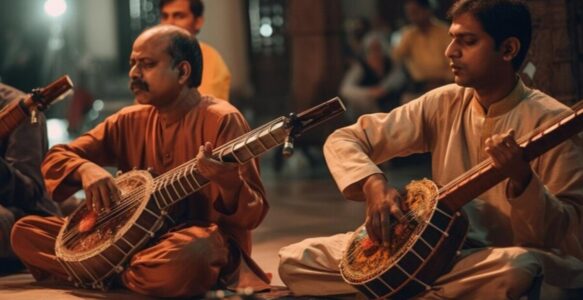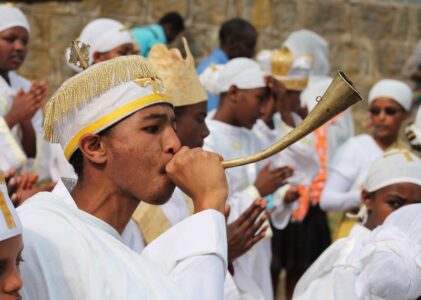Music was an essential part of civic, religious, and courtly life in the Renaissance. The rich interchange of ideas in Europe, as well as political, economic, and religious events in the period 1400–1600 led to major changes in styles of composing, methods of disseminating music, new musical genres, and the development of musical instruments. The most important music of the early Renaissance was composed for use by the church—polyphonic (made up of several simultaneous melodies) masses and motets in Latin for important churches and court chapels. By the end of the sixteenth century, however, patronage had broadened to include the Catholic Church, Protestant churches and courts, wealthy amateurs, and music printing—all were sources of income for composers.
The early fifteenth century was dominated initially by English and then Northern European composers. The Burgundian court was especially influential, and it attracted composers and musicians from all over Europe. The most important of these was Guillaume Du Fay (1397–1474), whose varied musical offerings included motets and masses for church and chapel services, many of whose large musical structures were based on existing Gregorian chant. His many small settings of French poetry display a sweet melodic lyricism unknown until his era. With his command of large-scale musical form, as well as his attention to secular text-setting, Du Fay set the stage for the next generations of Renaissance composers.









